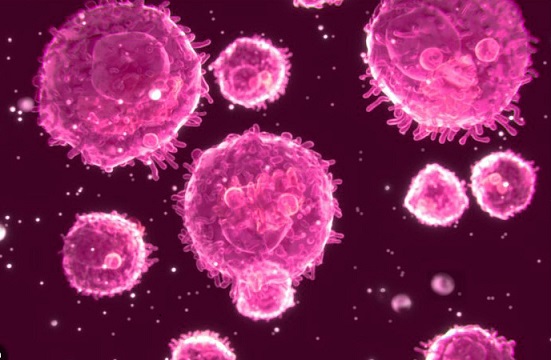Nikhil Prasad Fact checked by:Thailand Medical News Team Nov 02, 2025 3 months, 1 week, 4 days, 22 hours, 50 minutes ago
Medical News: Warn of Hidden Immune Damage in Elderly Post-COVID Patients
A new study by researchers from the Department of Cellular and Molecular Biology at Damghan University and the Food and Drug Administration at Semnan University of Medical Sciences in Iran has revealed alarming evidence that elderly people who have recovered from COVID-19 still carry deep immune system damage. Months after infection, their immune cells continue to die at unusually high rates, suggesting that the coronavirus may leave behind a form of lasting immune dysfunction.
 COVID-19 Makes Elderly Immune Cells Self Destruct Long After Recovery
Immune Cells Continue to Die Months After Recovery
COVID-19 Makes Elderly Immune Cells Self Destruct Long After Recovery
Immune Cells Continue to Die Months After Recovery
The research focused on peripheral blood mononuclear cells (PBMCs), vital immune cells that defend the body from pathogens. By comparing samples from elderly individuals who had COVID-19 with those who never contracted the virus, scientists discovered that the post-COVID group showed significantly higher rates of apoptosis—programmed cell death. This
Medical News report highlights that even six months after recovery, the immune cells of older adults were still dying off faster than normal, particularly the CD4 and CD8 T cells responsible for immune defense.
The Body’s Defense System Is Turning Against Itself
Through advanced flow cytometry, the researchers found that early apoptosis occurred in 22.6% of immune cells from post-COVID patients compared to only 11.3% in healthy controls, while late-stage apoptosis was nearly double that of controls. The mitochondria—the cell’s energy engines—were also malfunctioning, showing clear signs of depolarization, an indicator of cell damage. Scientists noted increased levels of proteins that promote cell death, such as Bax and Caspase-3, along with reduced levels of Bcl-2, which normally protects cells from dying. This balance shift suggests that the virus has triggered an internal “self-destruct mode” in the immune cells of elderly survivors.
Older Adults Show a Dangerous Immune Weakness
The study also found that those who had suffered severe COVID-19 infections exhibited the greatest level of cell death, and that immune recovery was slow and incomplete even a year after infection. The researchers believe this ongoing wave of immune cell destruction could make elderly survivors more vulnerable to infections, chronic inflammation, and autoimmune disorders.
Gender Differences Offer More Clues
Interestingly, elderly women showed slightly higher rates of early apoptosis in certain immune cells than men. The authors suggest this could be linked to hormonal or genetic differences that affect immune regulation, a finding that may help explain why COVID-19 impacts men and women differently even in the recovery phase.
The Aftermath of COVID-19 on Immune Aging
The findings strongly suggest that SARS-CoV-2 infection accelerates immune aging and damages the bo
dy’s natural defense mechanisms long after the initial illness has passed. Researchers urge doctors to monitor immune function in elderly patients who have had COVID-19, as their immune systems may remain compromised. Detecting signs of persistent apoptosis could help identify those at higher risk of long-term health complications and guide new therapies to restore immune balance.
The study findings were published in the peer reviewed journal: BMC Immunology.
https://bmcimmunol.biomedcentral.com/articles/10.1186/s12865-025-00769-6
For the latest COVID-19 news, keep on logging to Thailand
Medical News.
Read Also:
https://www.thailandmedical.news/articles/coronavirus
